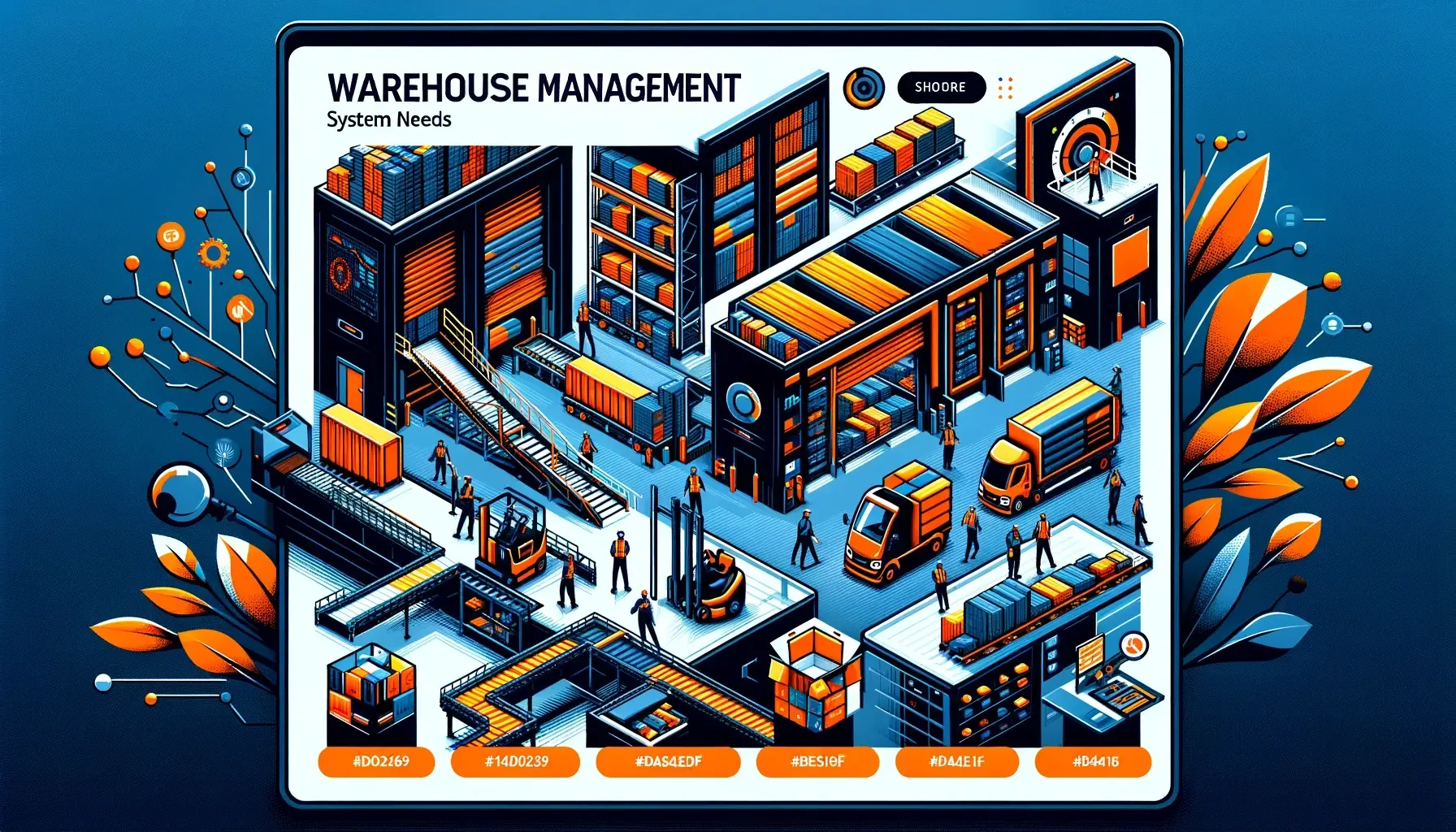In today’s fast-paced, highly interconnected world, businesses are constantly evolving to keep up with technological advancements. For companies involved in logistics, supply chain management, and inventory control, a comprehensive Warehouse Management System (WMS) has become more than just a tool—it’s a necessity. As industries expand and customer expectations grow, embracing sophisticated logistics technology is crucial for maintaining efficiency, reducing costs, and ensuring customer satisfaction. Here, we explore why businesses must invest in cutting-edge logistics technology and how systems like CartonCloud’s WMS are revolutionizing the way we manage warehouses.
Key Takeaways
- Warehouse management systems (WMS) are essential for optimizing logistics and supply chain operations.
- Businesses adopting logistics technology like CartonCloud’s WMS can reduce costs and improve efficiency.
- Modern warehouse management software integrates with other systems, providing real-time data for better decision-making.
- Automation and AI in WMS improve inventory accuracy, order fulfillment, and overall warehouse productivity.
- Investing in a robust WMS is crucial for businesses aiming to scale, remain competitive, and meet customer expectations.
The Evolving Landscape of Warehouse Management
In the realm of logistics, efficiency is paramount. The introduction of a modern warehouse management system has transformed how warehouses operate. Unlike traditional methods, which heavily rely on manual labor and rudimentary tracking, contemporary WMS software leverages advanced algorithms, automation, and real-time data to optimize every facet of warehouse operations. The demand for these sophisticated systems stems from an increasing need to handle complex supply chains, faster delivery times, and enhanced inventory accuracy, just as businesses navigating the complexities of online marketplaces may find it essential to hire an Amazon lawyer to resolve legal challenges.
Businesses adopting warehouse management systems experience a significant boost in their operational effectiveness. This transformation is not merely about replacing pen-and-paper methods but involves embracing a culture of innovation and continuous improvement. Companies that fail to invest in logistics technology risk falling behind, unable to compete in a landscape where speed, precision, and agility are the norm.
Why Logistics Technology is Crucial for Modern Businesses
The rapid growth of e-commerce, coupled with changing consumer behavior, has intensified the need for robust logistics solutions. Logistics technology, such as warehouse management software, enables businesses to streamline their operations, from order processing and inventory tracking to shipping and returns management. By integrating these technologies, companies can improve productivity, reduce human error, and achieve better visibility across their supply chains.
Moreover, logistics technology empowers companies to make data-driven decisions. With access to real-time analytics, businesses can identify bottlenecks, forecast demand, and optimize resource allocation. The importance of data cannot be understated; it provides the foundation for predictive analysis and strategic planning, which are essential in a highly competitive market.
The Role of a Warehouse Management System in Optimizing Operations
A Warehouse Management System (WMS) is the linchpin of any successful logistics operation. It serves as the digital brain of the warehouse, overseeing everything from inventory management to order fulfillment. By automating routine tasks such as picking, packing, and shipping, a WMS significantly reduces labor costs and minimizes errors. Furthermore, the system enhances inventory accuracy by providing real-time updates on stock levels, thus preventing overstocking or stockouts.
One of the standout features of CartonCloud’s Warehouse Management System is its ability to integrate seamlessly with other logistics technologies, such as transport management systems (TMS) and enterprise resource planning (ERP) software. This integration creates a unified platform that enables companies to manage their entire logistics process from a single interface, improving both efficiency and decision-making capabilities.
Key Benefits of Implementing a Warehouse Management System
Adopting a Warehouse Management System like CartonCloud offers several key advantages for businesses aiming to streamline their logistics operations:
- Improved Inventory Control: By using advanced tracking systems and real-time data, companies can maintain accurate inventory records, reduce excess stock, and improve order accuracy.
- Enhanced Productivity: Automation of repetitive tasks allows staff to focus on more value-added activities, such as customer service and process improvement.
- Reduced Operational Costs: Efficient management of resources, reduced labor requirements, and minimized errors lead to significant cost savings over time.
- Better Compliance and Reporting: A robust WMS can provide detailed reports that help businesses stay compliant with industry regulations and internal policies.
- Scalability: As businesses grow, a warehouse management system can easily scale to accommodate new processes, larger inventories, and more complex supply chains.
How Warehouse Management Software Transforms Inventory Management?
Inventory management is one of the most critical aspects of a business’s logistics strategy. An optimized inventory process ensures that companies have the right products available at the right time, minimizing stockouts and overstock situations. A warehouse management software like CartonCloud provides tools that enable real-time tracking, automated reorder points, and comprehensive inventory reports.
With the integration of artificial intelligence and machine learning, modern warehouse management software can predict inventory needs based on historical data, seasonal trends, and market demands. This level of automation and intelligence is indispensable for companies looking to maintain lean inventories while still meeting customer demand efficiently.
Logistics Technology: Driving Future Innovations in Warehouse Management
The logistics industry is on the brink of a technological revolution. Warehouse management systems are becoming smarter, more intuitive, and highly adaptable to new challenges. For instance, IoT (Internet of Things) devices are now being incorporated into WMS solutions, providing a level of transparency and real-time data accuracy that was previously unattainable.
CartonCloud’s Warehouse Management System exemplifies this trend by incorporating features that support IoT connectivity, mobile access, and cloud-based operations. This not only enhances operational flexibility but also ensures that logistics managers can access critical data anytime, anywhere, and make informed decisions promptly.
Enhancing Customer Satisfaction through Efficient Warehouse Management
In the current market scenario, customer satisfaction is directly tied to how efficiently a business manages its supply chain. Delays, inaccuracies, and poor inventory management can lead to unsatisfied customers and a damaged reputation. An advanced warehouse management system like CartonCloud helps businesses keep their promises by ensuring that orders are processed swiftly and accurately.
Furthermore, by improving warehouse efficiency, companies can offer faster delivery options, flexible return policies, and enhanced customer service—key factors in fostering customer loyalty and gaining a competitive edge.
Frequently Asked Questions (FAQs)
What is a Warehouse Management System (WMS)?
A Warehouse Management System (WMS) is a software solution that streamlines and automates warehouse operations, including inventory management, order fulfillment, and real-time data tracking. It helps businesses enhance productivity and accuracy in logistics.
Why is logistics technology important for businesses?
Logistics technology is vital because it optimizes the supply chain, reduces operational costs, and enhances customer satisfaction. By implementing tools like warehouse management systems, businesses can achieve real-time visibility and improve decision-making.
How does warehouse management software improve inventory control?
Warehouse management software improves inventory control by providing real-time updates, minimizing errors, and automating reordering processes. This ensures businesses maintain optimal stock levels and reduces the risk of overstocking or stockouts.
What features should a good Warehouse Management System have?
A good Warehouse Management System should offer real-time inventory tracking, integration with other logistics tools, automation features, and user-friendly interfaces. Advanced systems like CartonCloud also include IoT support and mobile accessibility.
How can businesses benefit from using CartonCloud’s WMS?
Businesses using CartonCloud’s WMS benefit from streamlined warehouse operations, improved inventory accuracy, and better resource management. The system integrates seamlessly with other technologies, providing a comprehensive logistics solution.
Conclusion
The rapid pace of technological advancement in logistics cannot be ignored. As customer expectations continue to rise and competition intensifies, businesses must adopt systems like CartonCloud’s Warehouse Management System to stay ahead. Investing in a warehouse management system is not merely a trend; it is a strategic decision that determines a company’s ability to thrive in a dynamic market environment.
By visiting topamag and integrating advanced warehouse management software, businesses can unlock new levels of efficiency, accuracy, and profitability. The future of logistics lies in digital transformation, and companies that choose to lead in this area will inevitably reap the rewards of sustained growth and customer satisfaction.







